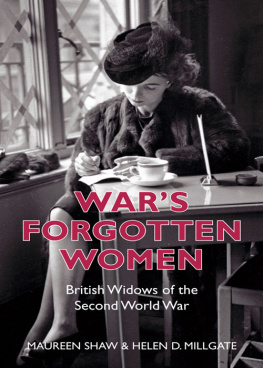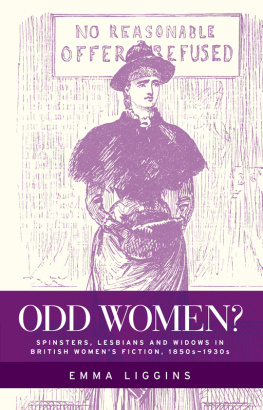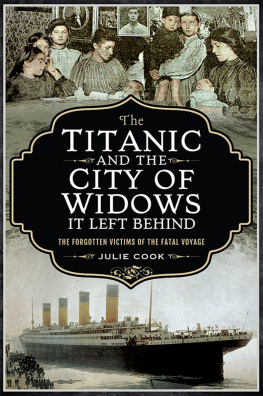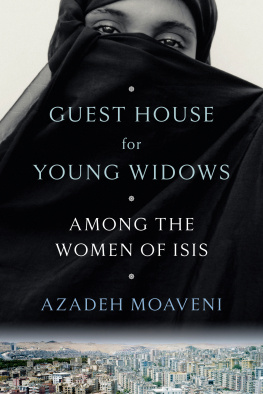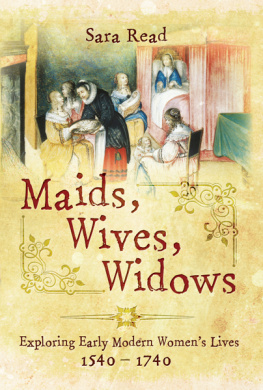CONTENTS
We are greatly indebted to the following who answered our request for information:
Anne Anslow, Mrs Barbara Arnold, Michael B. Bishop, Chris Beatty, Mrs E. Ball, Catharine Barnett, David Blackburn, Phyliss Bliss, Bill Bombroff, Mrs Jane Burge, Sheila Cameron, Mrs M.H. Capon, Mrs Vera Capon, Clive Carter, M.R. Coleman, Mrs Mary Cook, Mrs O.L. Cooke, Kay Davey, Ann Doward, Pauline Dumbrill, Mrs A. Eastland, David Emery, Bob Grainger, Mrs Daphne Hackling, Mrs Hilary Hare, Rosemary Hockney, Margaret Hothi, Mrs S. Hennessy, Mrs Joyce Hickling, Barry Ison, Mrs Betty Jennings, Peter J. Jewell, Roma Ogilvie-Watson, P. OKeefe, Barbara Lane, Sally Lawson, Ann Linford, Mrs N. Lestrange, Miss Mawson, Mrs E.M. Martin, Mary Monk, Ann Muller, Colin Newman, James Paice MP, Wilf Pearson, Vivienne Parslow, Roy Pickard, Mrs D.M. Pullen, Maureen Renfrew, Mrs M. Richardson, Reina Richardson, Mrs Elizabeth Roberts, Kathleen Shore, Helen Smith, Mrs Josephine Smith, Mrs M. Sonday, Michaela Spooner, Mrs Janet Stubbins, Elizabeth Tebbs, Bill Thompson, Foster Watson, Valerie Watson, Mrs R. West, Mrs B. Willis, Irene Willis, Pauline Williams, Bill Wilkinson, Carol Woodward, Mrs Olive Worton.
We are also especially grateful to Debbie Roberts at the Thompson Library, Staffordshire University, for access to the Iris Strange Collection and to Dr Janis Lomas who has allowed us the use of her work on war widows. Thanks also to Gordon Graham for the KET article based on Jim Gibsons account, David Blackburn for his poem and David Woodcock for his generosity with the GAFLAC material. It has been a great pleasure to make the acquaintance of Elizabeth (Betty) Tebbs whose life story has been quite inspirational. Gillian Farrar and Peter Francis shared their knowledge of the Royal British Legion and Ted Holmes was able to clarify the Australian pension structure. Gillian Grigg MBE, chairman of the War Widows Association from 200811 has been most helpful. Finally we must thank our husbands for their patience and understanding while we worked on this project. They have given us their total support and encouragement at all times.
1708 ............................... War widows pensions awarded to officers widows.
1854 ............................... The Crimean War. Establishment of the Patriotic Fund, the first charity to help only the on-the-strength war widows of other ranks.
1885 ............................... Public concern leads to the founding of the Soldiers and Sailors Families Association (SSFA), a voluntary charity formed to assist both on-the-strength and off-the-strength war widows of other ranks.
18891902 .................... The Boer War.
1901 ............................... State pensions introduced for on-the-strength war widows of other ranks.
191418 ......................... First World War. The government awards war widows pension to all widows (on-the-strength and off-the-strength and volunteers).
11 November 1918 ..... Armistice Day.
193945 ........................ The Second World War. The war widows pension is regarded as unearned income and taxed at the highest rate.
1946 ............................... Jessie Vasey, widow of General George Vasey, establishes a war widows guild in Melbourne, Victoria.
1948 ............................... War Widows Guild of Australia founded.
1971 ............................... Laura Connollys case is published in the Sunday Express. She calls on all British war widows to band together.
1972 ............................... Jill Gee constitutes the War Widows Association (WWA) and is elected its first chairman. The initial aim was to have the war widows pension declared non-taxable income. The WWA presents their first petition to 10 Downing Street and Mrs Gee unofficially lays a small wreath at the Cenotaph on behalf of the WWA.
1970s ............................. Mrs Iris Strange joins the WWA and becomes Secretary.
1975 ............................... First official War Widows service at the Cenotaph, the day before the national Remembrance Day service.
........................................Armed Forces Pension Scheme introduced. All service personnel serving for more than two years were henceforth entitled to a pension. The widows of those who have died either in service or in retirement where death is attributable to time in the service will receive a Forces Family Pension in addition to the War Widows Pension.
1976 ............................... Removal of 50 per cent of the tax on war widows pensions.
1977 ............................... Jill Gee resigns as chairman of the WWA.
1979 ............................... The remaining 50 per cent tax is removed, and war widows pensions become entirely free from tax. WWA begin fight for parity of pensions for all war widows.
1982 ............................... The Falklands Conflict.
........................................Representatives from the WWA invited to take part in the official muster and march past the Cenotaph on Remembrance Sunday.
........................................Iris Strange forms the breakaway British War Widows and Associates (BWWA).
1986 ............................... For the first time a plot is reserved for the WWA at the Field of Remembrance at Westminster Abbey.
1989 ............................... The first ever parade of war widows at the Remembrance Service at the Royal Albert Hall.
........................................Nicholas Winterton MP spearheads the cross-party campaign for parity for all war widows in the House of Commons.
1990 ............................... The government finally agrees to pay all pre-1973 war widows an MOD supplementary pension of 40 weekly tax-free to compensate for the lack of a Forces Family Pension.
1991 ............................... The WWA becomes a registered charity.
T HE RECENT activities of the British armed forces in Iraq and Afghanistan have currently stimulated an interest in the circumstances of the widows of men who die on active service. But what has happened to the women left bereft after the 193945 war? Some of them are still alive; certainly many of their children are. What kind of a life have they had since the untimely death of their husbands and fathers? Maureen Shaw was herself the only child of a soldier who died on active service in Burma and who vividly recalls her own childhood, with no father figure, no siblings and always short of money. She pondered the subject for many years then one day asked me if I would be interested in enquiring into the matter with her since I had previously published works on the war period. Together we decided to trawl the library catalogues to see what turned up; nothing did, though there may have been a few references tucked away that we missed. Look in the index of any of the myriad histories of both world wars and the word widow almost never appears. However what did turn up was a plethora of publications concerning the women widowed by the American Civil War, the Indian Mutiny, colonial strife and even a few about the First World War, but nothing at all of the Second. There are indeed the occasional references, in books on single-parent families, social service reports, and in the minutes of charitable organisations, but no more.
We hope to fill the gap. There has been an excellent response to our request for information, which appeared in many regional newspapers, and some of the replies are heartbreaking. The one quoted below from Mrs B. Willis of Plymouth was reason enough for us to persevere:
My Father died on the Russian Convoys (7.1.1943) and my mother was left with three young children, aged 10 years (me) 8 years (brother) and sister 5 years. My Father died of his wounds and had a naval burial in Murmansk, Russia, so we have never been able to visit a grave. Mum also lost a baby son ten months before we lost Dad. As regards to the financial straits we were left in, Yes, we became poor, as for the first week after losing my father as he died on a Friday and didnt live a full pay week my mother received just 19 shillings. My father when he died was an Acting Petty Officer (aged 32) and my mothers pension became 2.12/ a week to keep four of us. I do not know what her Naval Allowance was before that but I do know that our lives did change and Mum used to feel very bitter about the things we had to do without (basic things we needed, not luxuries). She sold our cheese and sweet [ration] and part of our clothing coupons to neighbours for money to buy coal and pay the gas and electric bills, we had no radio until a kind neighbour lent us an old one. To this day I cant eat cheese

